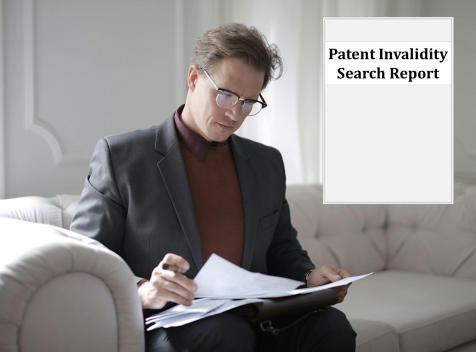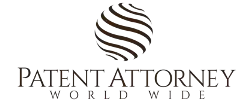Patent Invalidity search in Software and Technology Patents
Table of Contents
- Patent Invalidity search in Software and Technology Patents
- Introduction
- 1. Why Patent Invalidity is a Critical Issue in Software and Technology
- 2. Common Grounds for Invalidating Software and Technology Patents
- 3. Patent Invalidity and Open-Source Technology
- 4. Patent Trolling and Its Impact on Patent Validity
- 5. Landmark Patent Invalidity Cases in Software and Technology
- 6. Best Practices for Avoiding Software Patent Invalidity
- 7. Conclusion
- Why an Invalidity Search Is a High-ROI Investment
- Experience the Power of a Comprehensive Invalidity Search— Without any Risk
- Who Can Benefit from This Pilot Search?
- You may reach us with your requirement with this form
Introduction
The software and technology industries are among the most patent-intensive sectors in the world. Companies file thousands of patents annually to protect their intellectual property, maintain a competitive edge, and generate revenue through licensing. However, software and technology patents are frequently challenged for invalidity due to issues such as abstractness, obviousness, lack of novelty, and inadequate disclosure.
Patent invalidity in these fields can have far-reaching consequences, as invalidating a software or technology patent can determine market dominance, disrupt businesses, and even redefine innovation standards. In this article, we explore the common grounds for invalidity, landmark cases, legal challenges, and best practices for ensuring the validity of software and technology patents.
1. Why Patent Invalidity is a Critical Issue in Software and Technology
Patent invalidity is particularly significant in software and technology due to:
- Fast-paced innovation – New technologies emerge rapidly, making patents more susceptible to prior art challenges.
- Abstractness issues – Many software patents fail to meet patent eligibility requirements, as they often involve algorithms or abstract ideas.
- Patent trolling – Some entities (non-practicing entities or patent trolls) use weak patents to extract settlements from companies.
- Interoperability conflicts – Software and tech patents often overlap with open-source innovations and industry standards, leading to disputes.
- Cost of litigation – Defending against or challenging invalid software patents can cost millions in legal fees.
Invalidity searches and challenges are essential tools for ensuring that only truly innovative and legally sound patents are granted and enforced.
2. Common Grounds for Invalidating Software and Technology Patents
a) Lack of Patent Eligibility (Abstract Ideas and Algorithms)
In many cases, software patents are invalidated because they are deemed to cover abstract ideas, which are not patentable.
Case Study: Alice Corp. v. CLS Bank (2014)
- The U.S. Supreme Court ruled that abstract ideas implemented on a computer are not patentable under 35 U.S.C. §101.
- The decision led to the invalidation of thousands of software patents that lacked a concrete technological improvement.
- Lesson: To survive validity challenges, software patents must demonstrate technical improvements beyond mere automation of manual processes.
b) Lack of Novelty (Anticipation by Prior Art)
A patent is invalid if prior art fully describes the invention before its priority date.
Example: Apple v. Samsung (Smartphone Patents Dispute)
- In multiple lawsuits worldwide, Samsung challenged Apple’s patents on touchscreen gestures and UI elements.
- Courts found that some of Apple’s patented features had been described in prior publications, leading to partial invalidation.
- Lesson: Conducting thorough prior art searches before filing a patent is crucial.
c) Obviousness (Lack of an Inventive Step)
A patent can be invalidated if it is an obvious combination of prior art references.
Case Study: KSR v. Teleflex (2007)
- The U.S. Supreme Court established a broader standard for obviousness, making it easier to challenge weak patents.
- Many software and technology patents have since been invalidated under this ruling.
- Lesson: Software patents must demonstrate non-obvious technical improvements to avoid invalidity.
d) Overly Broad or Functional Claims
Many software patents fail because they contain overly broad or vague functional claims.
Example: Intellectual Ventures v. Capital One (2017)
- Intellectual Ventures’ patents on data storage and transaction systems were invalidated for being too broad and lacking specificity.
- Lesson: Patent claims must be narrowly defined and specific to the technical implementation.
e) Failure to Meet Written Description and Enablement Requirements
A patent must fully describe the invention so that someone skilled in the field can implement it.
- Many AI and blockchain patents have been invalidated for failing to disclose sufficient implementation details.
- Lesson: Patent applicants should include detailed algorithms, architectures, and system designs to meet the enablement requirement.
3. Patent Invalidity and Open-Source Technology
Many software patents conflict with open-source software, leading to invalidity challenges.
- The GNU General Public License (GPL) and Apache License often prevent companies from patenting widely used open-source technologies.
- Example: The invalidation of some MP3 and video compression patents due to prior disclosure in open-source projects.
💡 Tip: Companies should analyze open-source prior art before filing software patents to avoid conflicts.
4. Patent Trolling and Its Impact on Patent Validity
Patent trolls—companies that own patents solely to sue others for infringement—often hold weak or broad patents.
- Example: Uniloc’s patent lawsuits against Microsoft, Apple, and Google were dismissed due to invalidity challenges.
- Many patent troll lawsuits fail after invalidity searches reveal prior art.
💡 Tip: Conducting early patent invalidity searches can help businesses defend against patent trolls.
5. Landmark Patent Invalidity Cases in Software and Technology
| Case | Key Issue | Outcome |
|---|---|---|
| Alice Corp. v. CLS Bank (2014) | Abstract software patents | Thousands of patents invalidated |
| KSR v. Teleflex (2007) | Obviousness standard | Stricter patentability rules |
| Apple v. Samsung | UI and touchscreen patents | Partial invalidation due to prior art |
| Uniloc v. Microsoft | Patent trolling | Patent ruled invalid |
💡 Lesson: Courts are increasingly scrutinizing software patents, making strong patent drafting and prior art research essential.
6. Best Practices for Avoiding Software Patent Invalidity
To strengthen software and technology patents against invalidity challenges, companies should:
✔ Focus on technical improvements – Clearly define how the invention improves technology.
✔ Avoid abstract claims – Ensure the patent covers specific technical implementations, not just ideas.
✔ Conduct extensive prior art searches – Reduce invalidity risks by checking for existing publications.
✔ Provide detailed descriptions – Include source code snippets, system diagrams, and real-world implementations.
✔ Stay updated with legal precedents – Follow major rulings like Alice Corp. and KSR.
7. Conclusion
Patent invalidity in software and technology is a major concern due to rapid innovation, abstractness issues, and the risk of broad claims. Companies must carefully draft patents, conduct thorough prior art searches, and ensure their claims meet legal standards to avoid invalidation.
Need expert guidance on patent invalidity in software and technology? Contact us today for a comprehensive invalidity search and strategic patent review!
Why an Invalidity Search Is a High-ROI Investment

A well-executed invalidity search can mean the difference between:
✔ Winning vs. Losing a Patent Litigation – A single overlooked piece of prior art can make or break a case, saving millions in damages and legal fees.
✔ Gaining vs. Losing Negotiation Leverage – Invalidating a competitor’s patent before entering a licensing or infringement dispute can shift the power dynamics in your favor.
✔ Securing vs. Risking Market Freedom – Before launching a product, knowing whether an asserted patent is truly valid can prevent unnecessary licensing fees or redesign costs.
Simply put, an invalidity search is not an expense—it’s an investment with the potential for significant financial and strategic returns. However, we know that you may want to validate the quality of our work before committing to long-term projects.
Experience the Power of a Comprehensive Invalidity Search— Without any Risk
When it comes to patent litigation, licensing, and enforcement, every legal argument, business decision, and competitive strategy hinges on the strength—or weakness—of a patent.
At Patent Attorney Worldwide Pvt. Ltd., we specialize in conducting highly strategic patent invalidity searches that uncover critical prior art—often the key to nullifying a competitor’s patent, avoiding costly litigation, or gaining leverage in negotiations.
We understand that choosing a reliable partner for invalidity searches is a critical decision—one that must be based on results, not just promises. That’s why we are offering you an opportunity to experience our expertise through a risk-free pilot project—at the very minimum cost, that is no-profit costs.
Here’s how it works:
- Pilot Search at Minimum Cost – You get a comprehensive invalidity search at the lowest possible cost, ensuring no financial risk in evaluating our expertise.
- Full-Scale Research & Analysis – Unlike generic or automated searches, our manual deep-dive approach ensures we uncover even the most obscure prior art, whether from patents, non-patent literature, or global databases.
- Strategic & Actionable Insights – We don’t just provide a list of references; we analyze, categorize, and map prior art to show why a claim is invalid and how it can be effectively used in litigation or negotiations.
- No Obligation, Just Results – If our search delivers the value we promise (as we are confident it will), we can discuss regular engagements. If not, you still walk away with a top-tier search at near-cost pricing—with no further commitment.
Who Can Benefit from This Pilot Search?
- Law firms & patent litigators looking for a trusted partner in high-stakes patent invalidity cases.
- Corporations & in-house counsel needing a solid prior art strategy before licensing, product launches, or legal disputes.
- Entrepreneurs, inventors, and professionals requiring a high-quality invalidity search to safeguard their interests.
Feel free to contact us for your questions or concerns, we would be happy to answers all of your questions. We can get started with a pilot invalidity search project and let the results speak for themselves.
Let’s work together to uncover prior arts that makes an impact.
